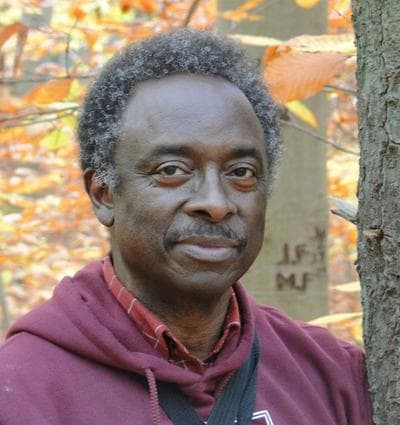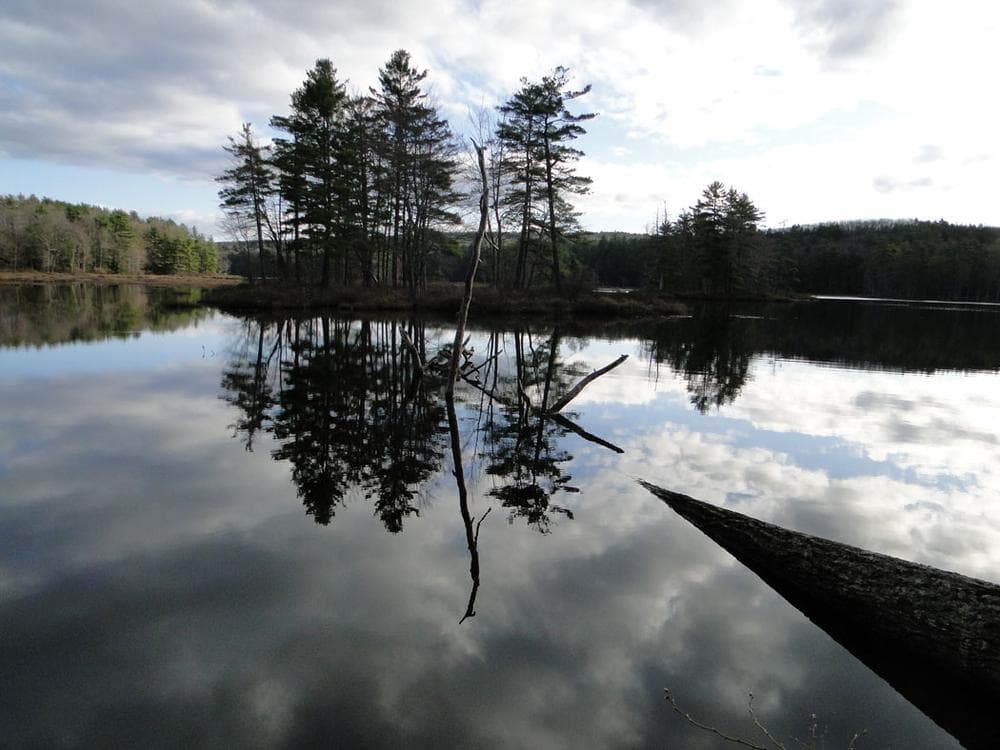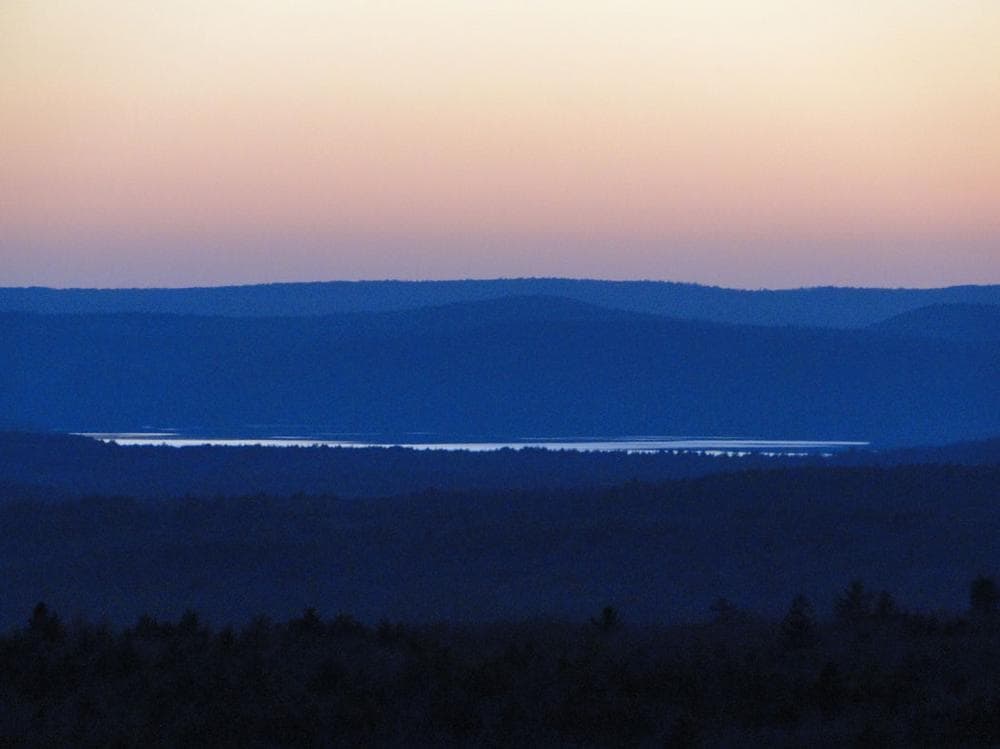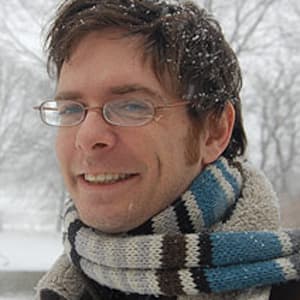Advertisement
Revisiting 1630s Massachusetts: Roberto Mighty's 'First Contact'
“I just wanted to evoke the feeling of what it was like to be there in 1630,” Roberto Mighty says of his video “First Contact: Puritans, Native Americans, and the Clash Over Land in 1630.” “I didn’t want to make a movie. I wanted to make an evocation.”
The 12-minute piece is a visual poem, luxuriating in Massachusetts’s wilds today while mulling the English settlers who founded the colony in the 17th century, and how they and their ideas clashed with the Nipmucs who had long resided in what is now the center of the state.
It begins by gazing up into trees, then down to their roots along a creek rushing over mossy rocks. There are flowering fields and splashing waterfalls, sounds of twittering birds and buzzing bugs.
“Contained within the volume of the land are fowls in abundance, fish in multitudes,’ an old English-accented voice identified as Thomas Morton in 1622 speaks over this ecstatic nature reverie. “For in mine eye it was nature’s masterpiece. … If this land be not rich, then is the whole world poor.”
Mighty shot the footage at the Harvard Forest, 3,500 acres of woodland in the central Massachusetts town of Petersham, when he was an artist in residence there in 2011 and ’12. The 58-year-old screens the video and speaks about it at Boston’s Old South Meeting House at 12:15 p.m. Thursday, March 28.

“First Contact,” which he first presented the video as an installation at Harvard’s Fisher Museum in Petersham last fall, grew out of previous photos and video he made around his Newton home in 2010, and screened at Harvard’s Arnold Arboretum the following year.
“My mom died just before then. And I was sad and I had started walking and because I’m a photographer and filmmaker I had a camera in my hand at pretty much all times,” Mighty says. “Over time I began looking around the ground. Even in a town like this there are a lot of trees that are fallen down and dead. … That led to a lot of philosophical wonderings about the nature of existence, why we are here.”
Mighty adds, “I came to a lot of conclusions in my year of walking. I had a very profound connection to ecology. … I was trying to get at a deeper understanding of it, to get a deeper understanding of humankind’s relationship to nature in general.”
“I had a spiritual awakening,” he says. “I began to feel a strange sensation that trees are not inanimate, that they may have some consciousness.”
This led him to his residency at the Harvard Forest.
“How I spent my time for 18 months is tramping around the forest early in the morning, late at night,” Mighty says. He read histories of the English settlement of the region, and their connections and conflicts with native peoples like the Nipmuc. “First Contact” combines footage of the Harvard Forest with voice-overs of English and Native American texts of the 1620s to ‘60s, from the establishment of the first English colonies to the beginning of the wars between the settlers and the natives they ultimately sought to displace.
“I wanted to understand spiritually how did these two peoples apprehend the nature of the land,” Mighty says.
When English colonists first settled in what is now central Massachusetts around the 1630s, they reported finding pine trees 20 feet around, he says.
“It’s clearly paradise. They had never seen a land so fertile. … By 1850, 60 percent of New England had been deforested,” Mighty says. “I was trying to figure out why they though this was all okay. Why was it okay to change the landscape dramatically? Why was it okay to move these people?”
Mighty says conflict between English settlers and native peoples was rooted, in part, in very different ideas of land and ownership. Nipmucs and other local native peoples were hunter-gatherers and seasonal farmers, he says, living lightly on the land and having a communal sense of ownership. The video quotes Ousemequin (also known as Massassoit, the Wampanoag leader credited with helping the English colonists at Plymouth survive their early starvation days) wondering, “What is this thing you call property? It cannot be the earth. For the land is our mother, nourishing all her children. … Everything on it belongs to everyone and it is for the use of us all. How can one man say it belongs to him?”
The English viewed the territory as a wealth of untapped natural resources that they sought to divide up into private plots and harvest. In the video, Mighty quotes Frances Higginson commenting in 1629: “Pity it is for the land to lie altogether unoccupied when families in Old England struggle to live.”
“There are so many ways they could not see each other’s point of view,” Mighty says.
For Mighty, the story is a tragedy—that we see coming in slow motion, quote by quote. His chronology concludes before the wars in which the English would devastate local native peoples and send many survivors into slavery. It concludes before the English and those that followed them, right down to us, would devastate the land with unsustainable farming and logging and, later, industry.
“My goal was to express what I was feeling as I was reading these notes and backgrounders,” he explains. “I was trying to imagine what they were seeing. … It all is to evoke the feelings and emotions of these people as they were struggling with these issues.”


This article was originally published on March 27, 2013.
This program aired on March 27, 2013. The audio for this program is not available.

